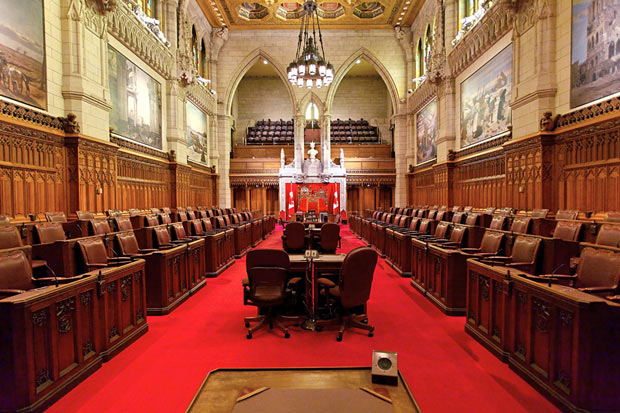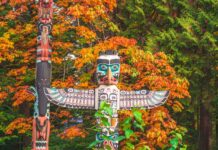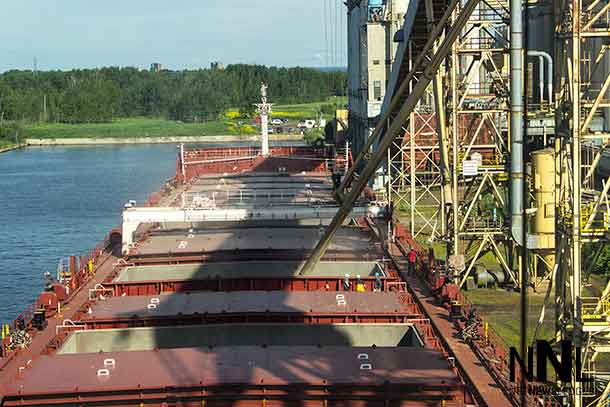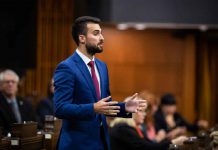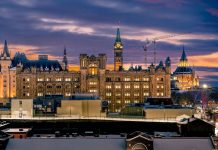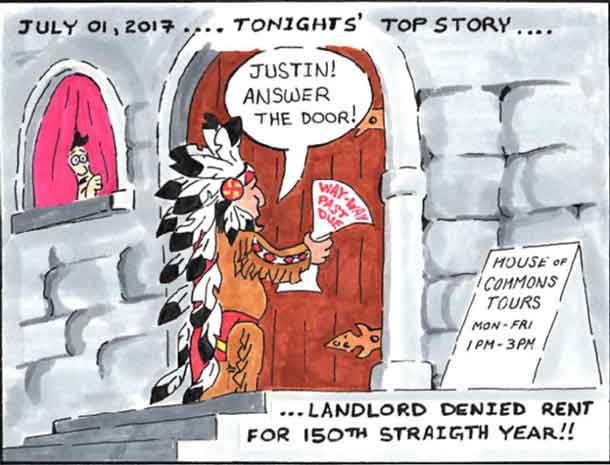 By Maurice Switzer
By Maurice Switzer
Canada always likes to see feathers and buckskin at their parties. They regard Indians as excellent window-dressing.
So for years, a familiar scene has played out every Canada Day on Parliament Hill.
The prime minister says a few words – in English and French, so as not to offend any of his voting base — about how strong the national fabric is because of its varied cultural strands. Then an Indian does a Hoop Dance, a bunch of Ukrainians do a polka, and Peter Mansbridge lights the fireworks.
This may be over-simplifying things, but you get the picture.
Indigenous peoples stare at this TV extravaganza, wondering why they are being portrayed as just another bunch of happy campers when their land has all been stolen, their parents are suffering post-traumatic stress from stints in residential school, and few of them enjoy as much financial security as the janitors at the Indian Affairs office across the Ottawa River in Hull.
This year, First Nations want things to be different. They hope that not participating in the July 1st shindig will send a polite but firm message to Canadians that the country’s first 150 years have been the worst in our last 30,000. It would be nice if folks could spare a few minutes of their 24-hour statutory holiday to reflect on even a few of the 94 Calls to Action of the Truth and Reconciliation Commission, recommendations intended to make Canada’s future be better than its past.
Anyone taking offence at Indigenous absence from Canada Day festivities should know that we weren’t invited to some much more significant celebrations.
Even though 10,000 Indian warriors were largely responsible for repelling the American invasion of 1812, not a single one of them was asked to participate in the Treaty of Ghent peace talks.
And when 36 stodgy old white guys – on what some historians describe as a whisky-inspired whim – decided in 1867 that they were going to create a new country called Canada, they never bothered to chat about their idea with the people whose land they planned on using. Did you know that Algonquin people have sued the government of Canada for erecting its Parliament buildings on land it has never paid for?
Talk about your overdue rent!
There are plenty of reasons why many Indigenous Peoples have chosen to avoid celebrating Canada’s sesquicentennial, just one of them being that we can’t pronounce it properly. In three previous columns on the subject, I’ve listed 140 of them. Here are some more:
- In 1969 the Pierre Trudeau government, in the person of then Indian Affairs Minister Jean Chretien, tries to unilaterally eliminate Canada’s treaty obligations and aboriginal rights through a notorious White Paper. A national uproar erupts from Indigenous peoples, and the government quietly ditches the plan. In 1973 the Calder Supreme Court decision for the first time recognizes the concept of Aboriginal rights. In 1982, Prime Minister Trudeau and Queen Elizabeth repatriate a new Canadian Constitution, in which Section 35 (1) reads: “The existing aboriginal and treaty rights of the Aboriginal peoples of Canada are hereby recognized and affirmed,” marking the end of another unsuccessful government attempt to legislate us out of existence. Can you say “genocide”?
- Successive governments of Stephen Harper and Justin Trudeau try 8 times to throw out a class-action lawsuit by survivors of the Sixties Scoop of Native children into foster care in Ontario, but in February of this year an Ontario Superior Court rules that the federal government has liability, and that the next step is to determine the amount of compensation for survivors. At the time, Indigenous Affairs Minister Carolyn Bennett acknowledges that harm was done, and says “We have no intention of going back to court.” Make that 9 times. Crown lawyers argue on June 13th that there must be 16,000 individual trials of survivors to determine the compensation issue. This is what they meant in those old black-and-white movie Westerns when the stoic Indian Chiefs said: “White man speak with forked tongue.”
That’s 150 reasons Indigenous peoples have NOT to celebrate Canada’s first 150 years of existence.
But three more deserve dishonourable mentions. They involve Indigenous men, women, and chldren.
- Indigenous peoples volunteer for military service in two world wars in higher numbers than any other identifiable group in Canada. In some First Nation communities, every adult male volunteers to wear a Canadian uniform, even though they are exempt from service by treaty right. Cpl. Francis Pegahmagabow of Wasauksing First Nation (World War I) and Sgt. Tommy Prince of Brokenhead Indian Reserve, Man. (World War II, Korean Conflict) are among the most decorated soldiers in Canadian history. After World War II, First Nations veterans are denied some $3500 in benefits (spousal assistance, education, jobs) that other veterans receive. In 2002, the federal government admits that it erred in short-changing the Native warriors, but, instead of paying them each a compounded $400,000 settlement, offers take-it-or-leave-it maximums of $20,000. So not even Native Canadians prepared to lay down their lives for Canada are exempt from racist treatment. (Is that what is meant by a “level playing field”?)
- February 22nd marks the 10th anniversary of a complaint filed with the Canadian Human Rights Commission by the Assembly of First Nations and Cindy Blackstock’s First Nations Child and Family Caring Society of Canada. A tribunal finds that the federal government has, indeed, discriminated against 14,000 Indigenous children in foster care by permitting an average 22-per-cent funding gap to exist between provincial children’s aid societies and First Nations agencies. The Stephen Harper Conservatives spend some $700,000 in legal fees trying to block the complaint from being heard. The Justin Trudeau Liberals refuse three times to comply with commission orders to address the funding shortfall. Meanwhile. Native children are dying, victims of a system that does not value their lives as much as those of other children in Canada.
- It takes the electoral removal of the Harper Conservatives to get a prime minister who thinks it is unacceptable in Canada in 2017 for there to be nearly 2,000 unsolved murders and disappearances of Indigenous women and girls. Presumably Justin Trudeau thinks that each of those lives are as important to their families as his eight-year-old daughter – Ella-Grace Margaret – is to him and his wife Sophie.
Those of you who are reading these words are not personally responsible for the tragic treatment of your Indigenous neighbours over the past century and a half. The genocidal policies of governments going back to the regime of Sir John A. Macdonald are not your fault.
But, as you raise your glass to celebrate Canada Day 2017, understand that you are absolutely accountable for what happens in this country today, and in the months and years ahead. Your citizenship duty entails more than just filing a tax return.
As the Ipperwash Inquiry into the 1995 death of unarmed protestor Dudley George concluded, former premier Mike Harris may not have pulled the trigger, but he was certainly responsible for contributing to an environment that made it more likely for such a tragedy to occur
Canada is better than that, and I will hold that thought on July 1st as I raise an Anishinabek Nation flag over my North Bay home.
Maurice Switzer, Bnesi, is a citizen of the Mississaugas of Alderville First Nation. He lives in North Bay, where he operates Nimkii Communications, a public education practice with a focus on the treaty relationship that made possible the peaceful settlement of Canada.

